Let's talk about play - tools for engaging kids in consultation and research about play and environment.
Our workshop kit is a starting point for working with children to explore ideas around place, environment and play. It provides tools for planning. It gives detailed suggestions and guidelines for activities and roles during an event. It also contains simple tools to capture facilitator’s thoughts to help with data sensemaking, and completing a feedback loop for participants.
Brief
A Playful City is Ireland’s first not-for-profit focused on creating more playful, engaging and inclusive cities with and for communities. The vision of A Playful City is to reimagine the spaces between the spaces of Dublin city - the laneways, the streets - as purposeful and engaging places that are designed for and with the communities around them. Recognising how important it is for the health and happiness of a city to carve out spaces to live, work, but also – to play, their vision is a city where the streets and public spaces engage and interact with its people – of all ages and abilities.
The starting point for this brief was to consider the ways in which A Playful City currently engages and consults with children, young people and adults on their vision for the future design of public spaces in the city. We were asked to question, consider and reimagine the consultation process utilised by A Playful City.
Research
I co-managed the week long research phase of this project which involved all 15 designers working as one studio. We identified 10 initial research strands
• What is Consultation? • Community Development • Evaluation and Impact • Corporate Sponsorship • Smart Cities
• Local Public Space Design • Best Practice Internationally • A Playful City • Play Research • Co-Creation
Synthesis of this research resulted in the formation of 5 complementary project areas where we, as a class, felt we could have most impact for A Playful City’s consultation processes, with a team of 3 assigned to each area:
- Incorporating technology - Play for the sake of play - Redesigning 'The Spiel Mobile' - Engaging teenagers - Engaging kids
Tools for engaging kids
research
We identified 4 core issues currently encountered by A Playful City in their engagements with children:
01 Issues retaining stakeholder engagement through the whole process
02 Difficulty in gaining value out of the data gathered from their explorations.
03 Data is often at a surface level, difficulty in eliciting deeper knowledge and insights
04 Team engagement in interpreting results - research analysis often conducted by someone who has not been involved in the data gathering
* Clark, A., and Moss, P. (2011). Listening to young children: The mosaic approach (Second edition.). London: National Children’s Bureau.
Concepts
We developed 3 initial concept areas and some very quick prototypes:
• Observation + Activity Kit for 2-4 year olds
• Workshop Planning + Activity Kit for 7-9 year olds
• Child Investigator Kit
Given the timeframe and opportunities available to us for testing, we chose to focus on creating workshop strategies and tools for engaging with kids aged 7 - 11.
Prototyping + Testing
How might we design for a more holistic workshop process, encompassing planning, delivery & evaluation
We conducted initial testing of a variety of activities with Fionn, James and Evan in both home and external locations. Activities including collaborative drawing, storytelling prompt cubes, story drawing, periscope perspectives, a child-led tour and floor mapping exercises.


From there we further developed 3 activities for testing with larger groups at a primary school workshop.
What we learned:
• Knowing your aims - a facilitator needs to be clear on the aims of the research to know how to appropriately guide the activity
• Importance of planning and defining roles
• Timekeeping - for workshop as a whole but also to ensure you have time to get to your most important questions
• Documenting - it's easy to forget in the creative chaos
• Thinking of the whole experience of the workshop for the children - it's not just a sequence of activities
• Workshop download / Sensemaking - importance of making notes during or immediately after a workshop when the information is fresh and easily recalled



We refined these tools and activities for our next testing group, a workshop with a Brownie troop. This allowed us to test activities in a different, freer format where we had more physical space to work. We had also refined our workshop process, assigning more defined roles for both ourselves and volunteers, and planning introductory and concluding whole group activities.
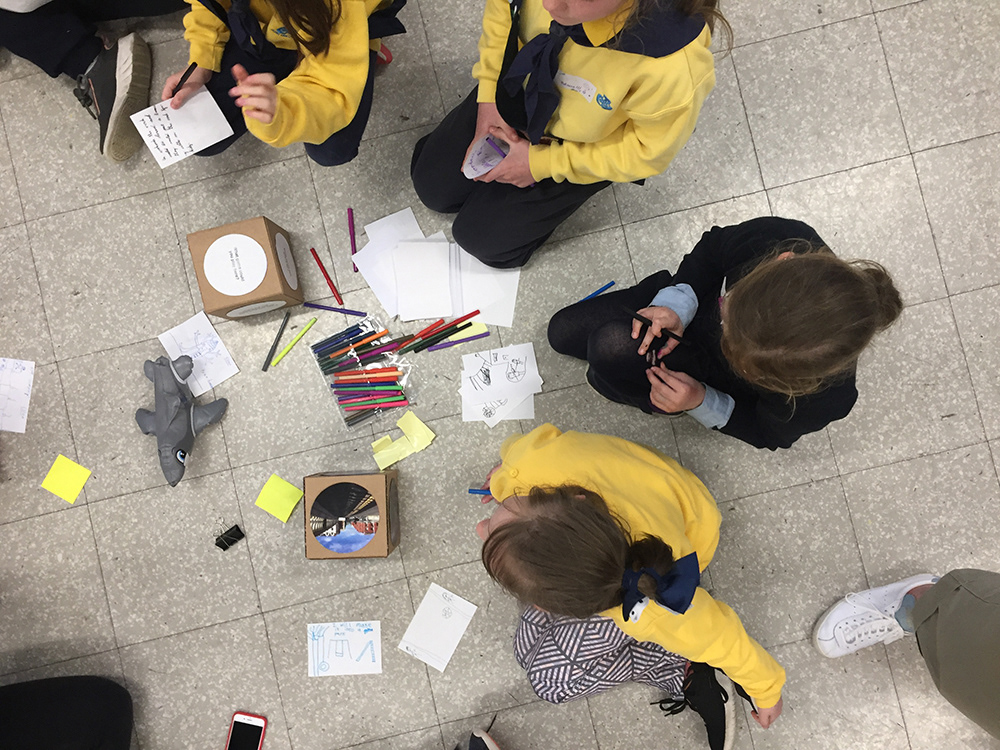
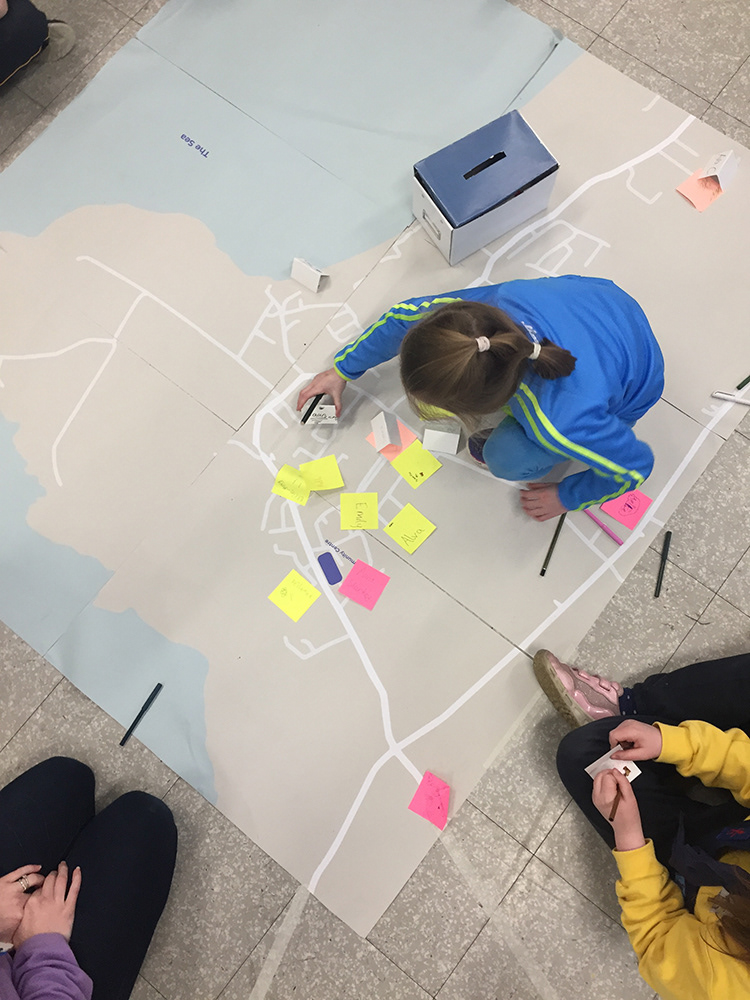
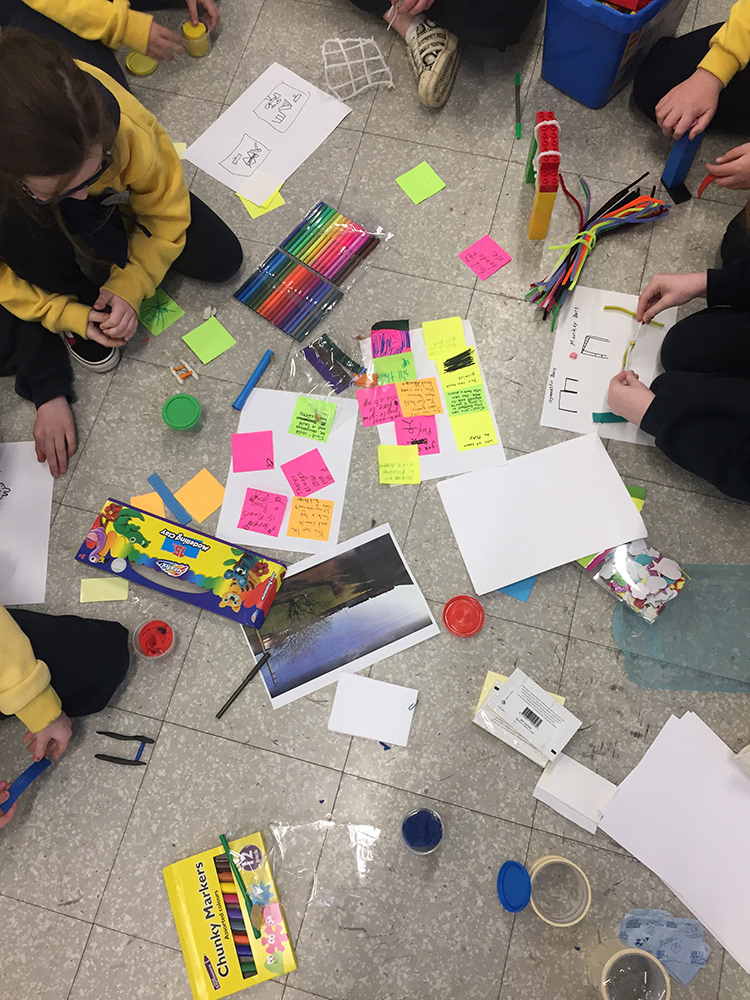
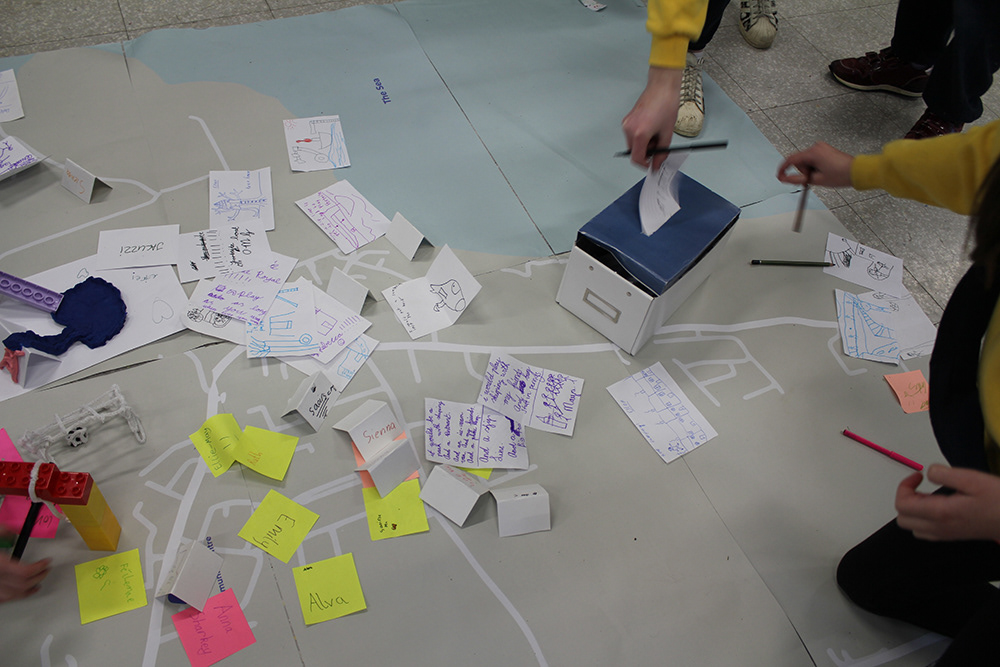
What we learned:
• These are multi-use tools which can be adapted for different scenarios and could be used for evaluation as well as research
• Thinking of the whole experience of the workshop was very beneficial
• If there isn’t going to be another engagement, how do we feedback to workshop participants about what we are doing?
• Importance of refining and evaluating the process together
• Spotting potential creative dead ends - kids this age can easily get caught up in current obsessions such as Fortnite, it's important to be able to spot these things early and redirect attention
Final Concepts
planning kit
Our workshop kit is a starting point for working with children to explore ideas around place, environment and play. It breaks the workshop process down into distinct stages: before, during and after the event. It includes a planning sheet and workshop download sheet for every facilitator. It gives detailed suggestions and guidelines for activities and roles during an event and a feedback sheet for informing participants of what may happen next. Its aim is to streamline and enhance many aspects of conducting workshops of this nature and to encourage time for reflection and refinement of those practices.
maps
A number of mapping activities were tested and formatted into individual, group desk based and group floor based templates with instructions for printing and use.
Question cards
A variety of carefully considered open ended questions which can be used with a mapping activity, with post-it notes or with drawing and prop making as responses. The pack contains 3 categories of questions: place cards, situation cards and wish cards. It also contains a set of facilitator cards with prompts for further questions related to each category.
Story dice
The story dice can be filled with location and research appropriate questions and images. They can be used separately or together as playful prompts for storytelling, drawing and discussion. Kids role the dice to decide the location or topic for a story.
Postcards
The postcards are used as a concluding activity either left with participants to be returned later, or part of the workshop and "posted" at the end. They are an opportunity for participants to give one final thought to the team after all they have done in the workshop.

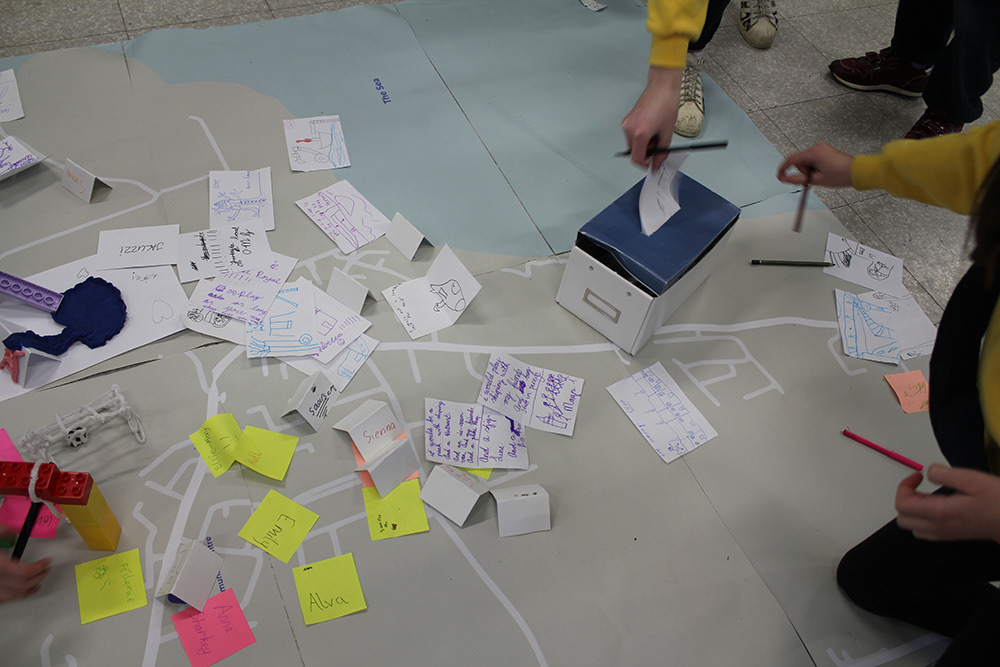
If we had more time...
We would expand the range of activities tested to include some, or all of the following activities which we did not test: